
Burma, Especially Its Children – Post 6: The Buddhist Religion Permeates Life in Burma
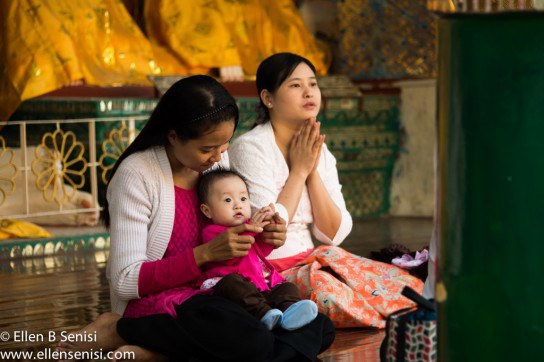
A large majority of Burmese people are Buddhists (89%) so a little background on Buddhism is helpful in understanding the Burmese people.
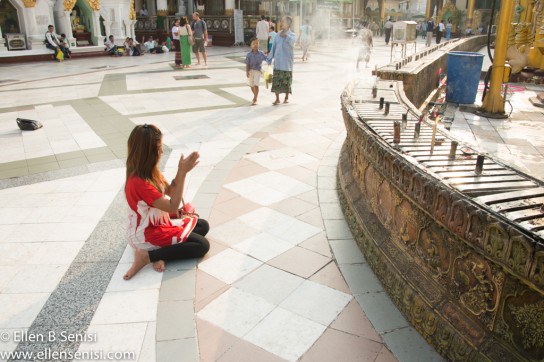
The Buddha is not a “God”, as is found in other religions. The Buddha was a man named Gotama Buddha who lived from about 563 B.C. to about 483 B.C. in India. He found enlightenment (otherwise known as Nirvana) after many years of meditating. There are many, many statues of the Buddha to be found in the many, many temples of Burma!
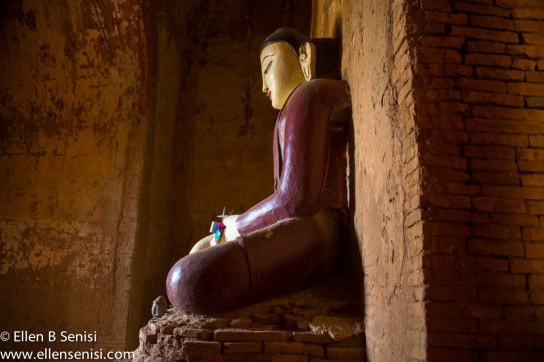
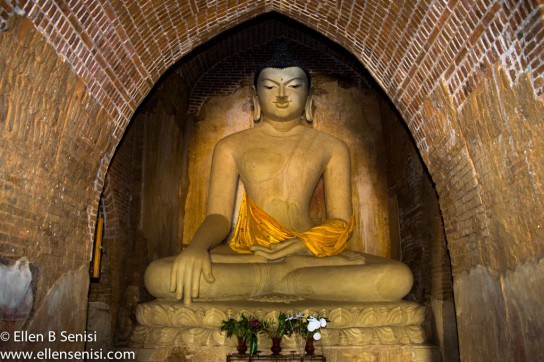
And, unlike many other religions, no one is forced to believe. This is how one of our guides (a devout Buddhist) described it to me: “Buddha said, ‘This is the way I have found to enlightenment. Follow the pathway, if you wish to. It is your choice.’ ” One summation of the Buddha’s teachings is found in the Eightfold Path, which includes guidelines such as Right Action, Right Speech, Right Livelihood, and Right Concentration.
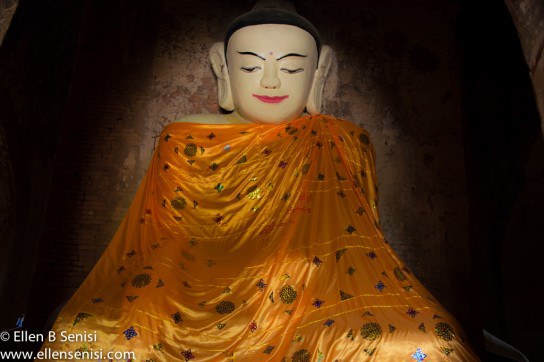
Most Burmese males spend at least a few years as novices in the monastery, often starting at a young age. Some end up becoming monks and staying on in the monastery for life.
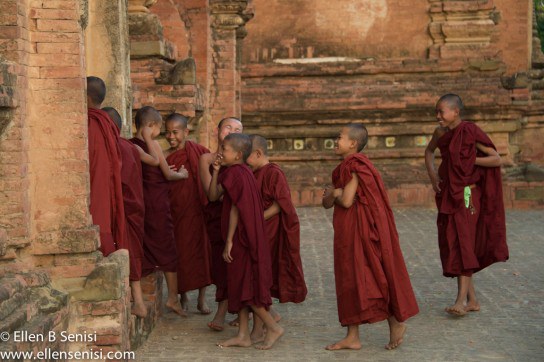
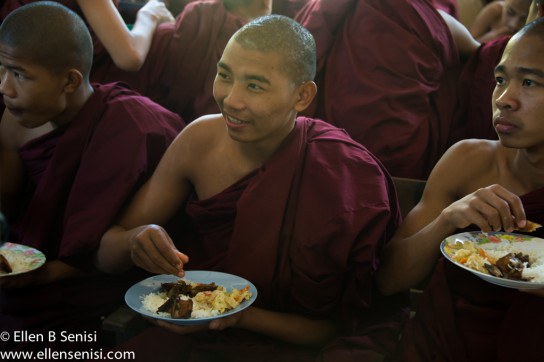
Here, young Buddhist novices come over a hill at sunset. They are in the Bagan Archeological Area, which has thousands of Buddhist temples, pagodas, and stupas. (There is a upcoming post devoted to this incredible area.)
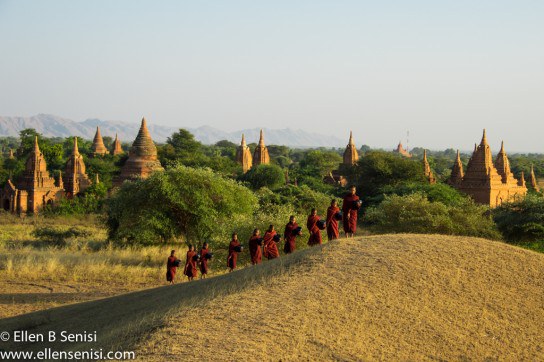
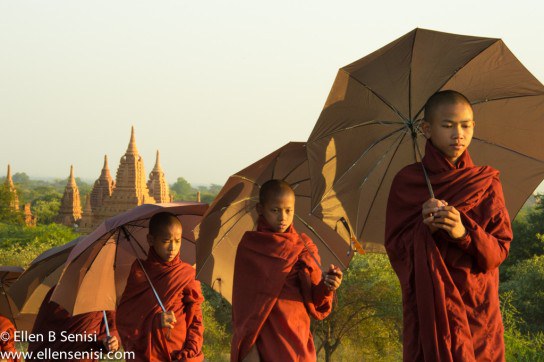
The novices were great to work with! We donated to their monastery and then took them by bus to several sites for photo ops – they loved it!
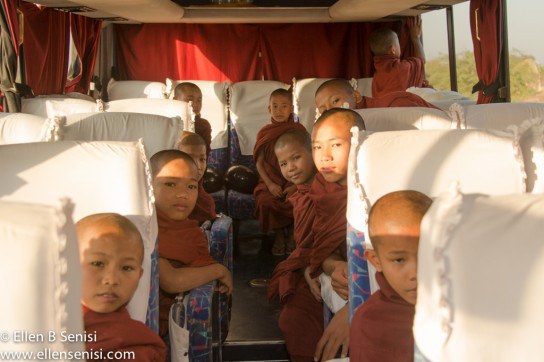
One of our guides told us that Buddhists take karma very seriously – it’s more than a pop song title or glib joke, as it is in the West. Buddhists believe that every action has a reaction, one that you won’t know until much later, or, more likely, never. Like throwing a stone into water, words and actions ripple out to affect others.
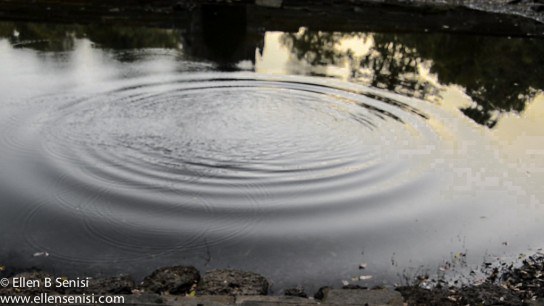
Buddhists strive to live their lives creating good karma by good actions. This is not just lip service – I saw it in the actions and behavior of our guides. I saw kindness to children, alms to monks, and gentle words and donations to beggars. In our seven days in Burma, I never experienced New York attitude. Hey, I love NYC, but I have to admit that New Yorkers don’t generally go around acting as if creating good karma is high on their to-do lists.
